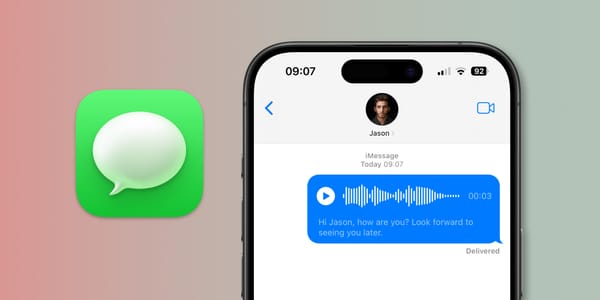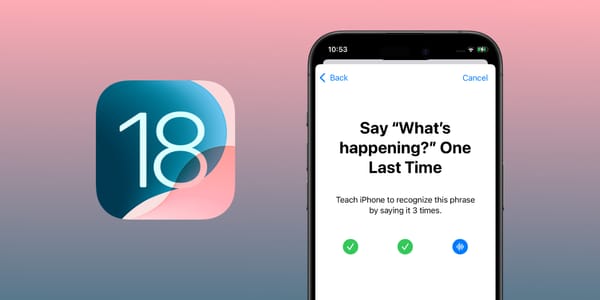How Siri can Help People with Alzheimer’s
Technology and science can be used to great effect in helping those suffering from Alzheimer's Disease. Siri, the voice-activated personal assistant, can prove to be immensely helpful in their day-to-day lives.

One of the most common symptoms of Alzheimer's disease is memory decline. As the disease progresses, memory loss becomes more pronounced and disruptive. For many people with Alzheimer's, this can be a significant source of anxiety and stress.
Fortunately, there are ways to support those with Alzheimer’s that don't involve traditional therapy or medication. One of these methods is using Siri on your iPhone, iPad, or Apple Watch to aid in memory retention.
How Siri can help those with poor memory
Siri can help you remember things, find things, and keep track of your schedule—all tasks that can be difficult when you're dealing with the disease.
Reminders is probably the most helpful app. Its most obvious use is as a prompt to take medication.
Siri, remind me to take my medication at 9 am every morning.
It can also remind users to ask questions when sending a text message.
Siri, remind me to ask when he is visiting next time I message Tom.
Siri has deep integration with most apps, such as Contacts, so answering questions about friends and relatives is straightforward.
Siri, what is Tom’s phone number?
The Calendar can be used to keep track of events and appointments.
Siri, what am I doing today?
Siri, do I have any appointments today?
The Apple Watch is another tool to consider. It’s more difficult than a phone to leave lying around or accidentally lose, and it can be used to track the wearer’s location (as long as they have shared their location with you) when they go for a walk.
Similarly, Apple Watches and iPhones can be used to guide a person home should they get lost.
Siri, take me home.
Siri, how do I get home?
The Apple Watch also has additional benefits, such as fall detection, which automatically calls emergency services and sends a message to an emergency contact should the wearer not respond.
Music is known to help people with Alzheimer’s. It can make them feel better by bringing back memories and emotions. Music is one of the most powerful tools in our lives when it comes to emotional connection. It has been proven to help people with Alzheimer's recover memories or even plan better.
Creating a playlist of much-loved songs with Apple Music can calm and relax a person.
Using Siri, automation can be set up to play a specific playlist every day at a given time.
Keeping those with dementia connected to the world
People with Alzheimer’s disease can find it challenging to communicate. Siri can be of tremendous help when looking after people who cannot tell you what they need.
William Glover sent us the following message that demonstrates the potential of Siri and other voice-activated assistants.
I have been having an Alzheimer's patient experiment with using Siri to text his family and friends.
The gentleman can no longer read or write or dial a phone. While there are some areas of difficulty, he is able to communicate with loved one's in a manner that has been lost to him over the seven years since his diagnosis.
I looked at a number of other dictation apps prior to trying Siri. No one comes close to SIRI's simple functionality.
There has been an increase in media reports of people using voice assistants as pseudo-companions to help combat loneliness.
Ethics aside (should we rely on electronic devices for interaction rather than human beings), this indicates an intriguing future for artificial intelligence.
With Siri’s help, we hope that people with Alzheimer's and their caregivers can live more independent lives. We also hope that this technology can be used by other people with disabilities who want to stay connected to friends and family members who might be unable to move around as easily.





